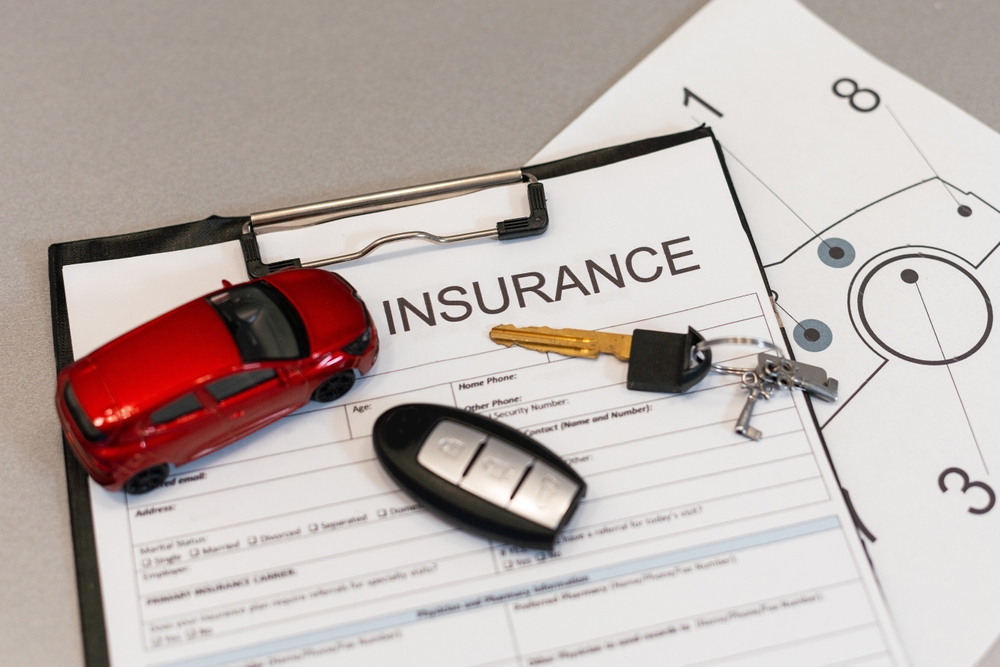Whether you’re commuting to work or enjoying a scenic drive through the Blue Ridge Mountains, following the Georgia car insurance requirements isn’t just a smart idea—it’s the law.
According to Georgia’s Department of Revenue, all drivers must maintain specific minimum insurance coverage to operate a vehicle legally. This requirement exists to protect both you and other motorists in the event of an accident, ensuring that everyone on the road has basic financial protection against unexpected incidents. Those who drive a vehicle without insurance may face consequences ranging from fines to vehicle suspension.
Dealing with insurance issues can be particularly stressful while recovering from a car accident. Like your GPS helps you navigate daily drives, this article is intended to guide you through Georgia’s car insurance requirements. We will review the mandatory and optional coverages available, emphasizing the importance of having insurance in the event of a car accident.
Georgia Car Insurance Requirements Overview
Car insurance fundamentally protects drivers and pedestrians. Georgia law mandates that all drivers carry liability insurance to cover payments related to damages or injuries sustained in accidents where they are at fault.
Known as “25/50/25 coverage,” the minimum Georgia car insurance requirements are as follows:
- $25,000 in bodily injury liability per person: This covers medical expenses and related costs if someone is injured in an accident where you’re at fault.
- $50,000 in bodily injury liability per accident: This represents the total amount your insurance will pay for all injuries in a single accident where you’re at fault.
- $25,000 in property damage liability per accident: This covers damage to other people’s vehicles or property in an accident where you’re at fault.
Because medical expenses and repair costs can easily surpass the minimum Georgia car insurance requirements, many drivers opt for higher coverage for extensive protection. Let’s take a closer look in the next section.
Understanding Liability Coverage
While liability insurance is your first line of financial defense when found at fault in an accident, keep in mind that it does not cover your own injuries or vehicle damage. It solely protects others affected by an accident you caused.
Liability coverage is divided into two main components:
Bodily Injury (BI)
BI coverage helps pay for medical expenses, rehabilitation costs, and even funeral expenses if someone is injured or killed in an accident where you’re at fault.
Property Damage (PD)
PD covers repairs or replacement of other people’s vehicles and property that you damaged in an accident.
While Georgia’s minimum car insurance requirements may seem substantial, they can quickly be exhausted in serious accidents. For example, if you cause an accident that seriously injures someone, their medical bills alone could exceed the $25,000 per-person bodily injury limit.
Similarly, if you’re in an accident involving multiple victims, the $50,000 per accident limit might not cover everyone’s expenses. Once your insurance limits are reached, you become personally responsible for any additional cost.
Additional Types of Coverage
Several optional coverages provide additional protection for you and your vehicle when the minimum Georgia car insurance requirements aren’t enough:
Comprehensive Insurance
This coverage protects your vehicle from non-collision-related incidents, including:
- Theft
- Vandalism
- Fire
- Natural Disasters
- Encounters with Animals
For example, if your car is stolen from a parking lot or damaged by a falling tree, comprehensive coverage would help pay for repairs or replacement.
Collision Insurance
This coverage pays for damage to your vehicle when you’re involved in an accident, regardless of fault. Whether you hit another car, a guardrail, or any other object, collision coverage helps cover the repair costs of your vehicle.
Uninsured/Underinsured Motorist Coverage
Despite legal requirements, some Georgia drivers forego coverage. Uninsured motorist coverage helps cover your expenses if you’re in an accident with one of these irresponsible drivers, ensuring you don’t pay out of pocket for someone else’s negligence.
Medical Payments Coverage
This optional coverage helps pay for medical expenses for you and your passengers, regardless of who caused the accident. It can help cover deductibles and co-pays that your health insurance might not fully cover.
Gap Insurance
If you’re financing or leasing a vehicle, this coverage pays the difference between what you owe on your car loan and what your car is worth if it’s totaled. This can be particularly valuable for new vehicles, which depreciate quickly.
While these additional coverages increase your insurance premiums, they provide comprehensive protection that can save you from significant financial hardship in the event of an accident. Many drivers find that the financial security offered by full coverage far outweighs the additional cost.
Georgia’s Comparative Fault & Diminished Value Rules
Is Georgia a Comparative Fault State?
Yes—Georgia utilizes a comparative fault system that directly impacts how insurance claims are handled after an accident. Under this system, each driver is assigned a percentage of fault based on their role in causing the accident. Drivers can recover damages proportional to their degree of fault. However, if you’re found to be 50% or more at fault, you cannot recover any compensation.
Is Georgia a Diminished Value State?
Yes—Georgia is also one of the few states that recognizes diminished value claims. This means you can seek compensation for your vehicle’s decreased resale value after an accident, even if it’s been perfectly repaired. To qualify for a diminished value claim, your vehicle must meet specific criteria:
- Must be worth at least $7,000.
- Have low-to-normal mileage.
- Possess a clean title.
- Less than 10 years old.
Provided you weren’t at fault for the accident, you must file a diminished value claim within four years of the incident. The claim process involves contacting the at-fault party’s insurer and substantiating it with repair records, photos, and proof of your vehicle’s pre-accident value.
Penalties for Failing to Meet Insurance Requirements
Driving without insurance in Georgia carries serious consequences. If caught, you face classification as a misdemeanor offender, which can result in up to one year in jail and monetary penalties starting at $25. If not paid within 30 days, fees can increase to $185. Additionally, your vehicle registration may be suspended for up to 90 days, and your vehicle could be impounded.
To avoid these penalties, maintain continuous insurance coverage and carry proof of insurance in your vehicle at all times. When changing insurance providers, ensure there’s no gap in coverage, and promptly notify the Georgia Department of Motor Vehicles (DMV) about any insurance changes or cancellations. Letting your insurance lapse, even briefly, can trigger automatic notifications to the DMV and result in registration suspension.
Tips for Choosing the Right Insurance Policy
Selecting the right auto insurance policy requires reflection and research. Consider these suggestions when shopping around for coverage to meet Georgia car insurance requirements:
- Prioritize Your Personal Needs
Start by evaluating your personal needs, including your vehicle’s value, your assets that need protection, and your risk tolerance. Consider factors like your driving record, location, age, and vehicle usage—all of which affect your premium rates.
- Shop Around
When shopping for coverage, obtain comparable quotes from multiple insurance providers. Look for available discounts such as multi-vehicle policies, completion of driver education courses, good student discounts, and bundling options. Many insurers also offer reduced rates for safety features and anti-theft devices.
- Consider Optional Coverage
While the minimum Georgia car insurance requirements provide basic protection, consider increasing your coverage. The relatively small increase in premium costs can provide significantly more protection for your assets in case of a serious accident. Remember to periodically review and update your coverage as your circumstances change.
Protect Your Rights with the Legal Experts at Weatherby Law Firm
Still have questions about Georgia car insurance requirements?
Contact Weatherby Law Firm and one of our resourceful car accident lawyers will be happy to answer all of your remaining questions. If you’ve been injured in a car accident, we can also help. Just as important as protecting yourself and others on the road by securing adequate insurance coverage, contacting a resourceful lawyer after an accident can help secure justice and a full recovery from your injuries.
By navigating insurance claims, determining fault in accidents, and obtaining fair compensation for our clients, Weatherby Law Firm ensures that injured car accident victims can focus on their recovery without having to worry about the legal aftermath. Our team has decades of combined experience and has recovered millions for our satisfied clients.
Contact Weatherby Law for a free consultation, and take the next step in recovering from the car accident that caused your injuries.




